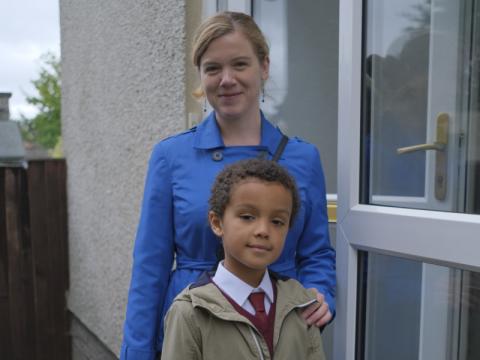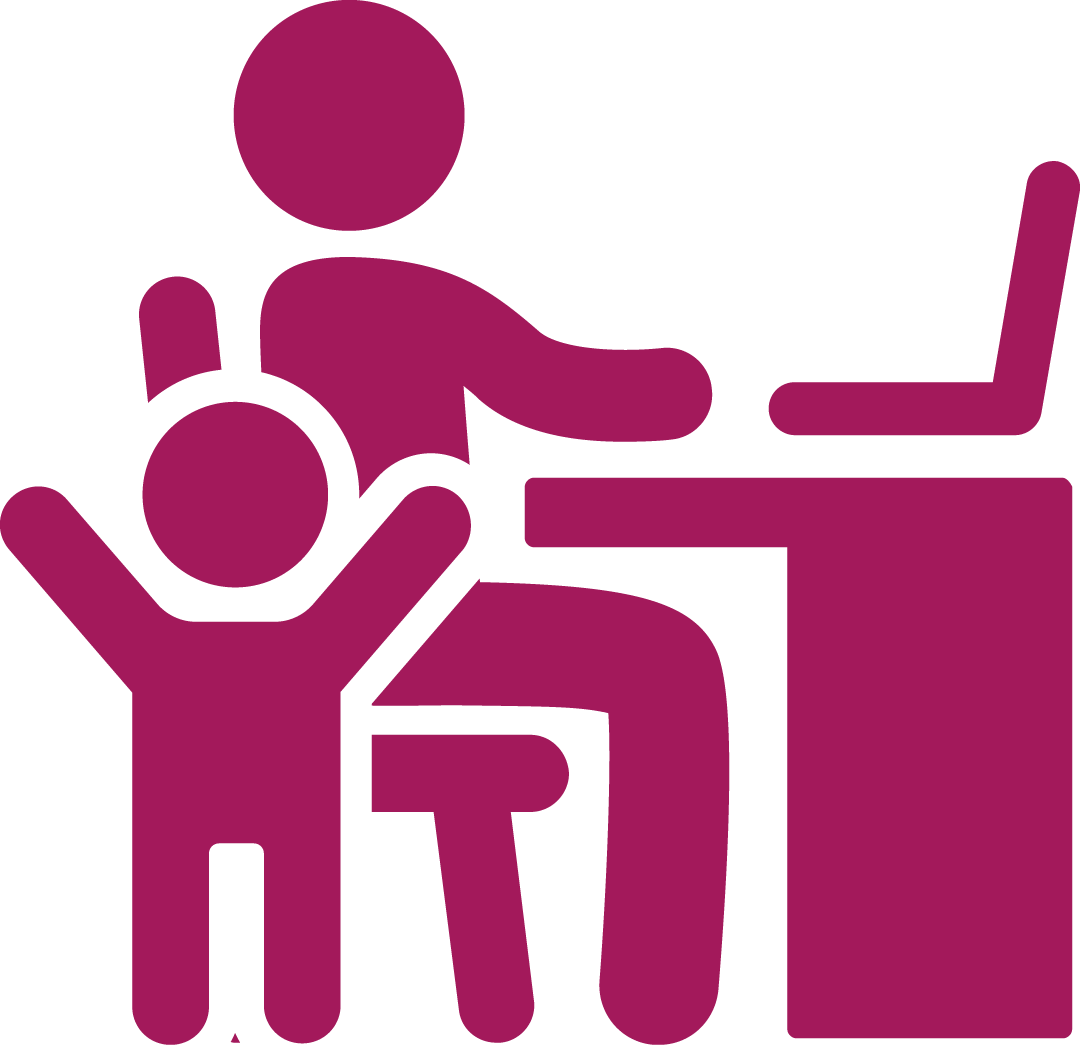It can be really hard to find time to manage your money, and the idea of drawing up a budget might seem daunting if you’re not done it before. But taking some time out to sit down and look at what you have, what you spend and what you owe can really pay off. Here are some budgeting tips to help you get started.
What is a budget and why is it important to make a budget?
The best way to get control of your finances is to know exactly what’s going on. And the best way to do this is to make a budget. Your budget is the amount of money you have to spend. To make one, you need to set out all the money that's coming in, and then work out how best to spend it to ensure all the essentials are covered.
When we’re worried about money it can be so tempting to bury our heads in the sand and hope things get better, but this doesn’t really help. Taking a good look at what money is going in and what’s coming out can help us identify areas where we might be able to save money, and help head off any problems before they get too bad.
But if all this seems too stressful and time consuming, the best thing to do is get help from the Money Talk Team. They’ll help you understand what you’re entitled to and the ways in which you might save money. As well as providing online advice on the Money Talk Team website, they can also be reached by phone on 0800 028 1456. Or you can visit your local Citizens Advice Bureau for in person support.
Top tips on how to make and stick to a budget
Tip #1: Gather together all the information you need

Don’t try to guess how much money you have coming in and going out. Instead, pull together all the information you need to work it out. This may take a bit of time, but it’ll be worth it in the end. If all the money goes in and out of the same bank account this will be a lot easier to work out, but if you have more than one account, a credit card or you pay for things in cash, this could take a bit longer. So take the time to dig out any:
- bank statements
- payslips
- credit card statements or bills
- receipts for things you usually pay for in cash.
Tip #2: Work out how much money you have coming in
The first step is to work out how much money you have coming in. This could be from:
- your job
- maternity or paternity pay
- child maintenance
- benefits and tax credits
- student loans or grants
- pensions or savings
- any other regular income, for example, if you let out a room in your home.
Tip #3: Work out how much you spend
Next, you’ll need to work out how much you spend. It’s a good idea to look back over the whole year, rather than seeing how much you spend in one month, as you may pay for some things on a quarterly or annual basis. Also this way you can factor in things like birthdays and Christmas.
Things to think about include:
Household costs, for example:
- Rent or mortgage
- Council tax
- Gas and electricity
- Any other charges for your home (for example for stair cleaning or maintenance)
- Mobile and broadband
Living costs, for example:
- Childcare
- Travel and car costs
- Food and other shopping expenses (like cleaning products, toilet roll, etc)
- Clothes and shoes
- Toiletries (shampoo, deodorant, nappies, etc)
- School costs (like uniform, after school clubs, school bag, etc)
Other payments, for example:
- Insurance (home and contents, car, pets, etc)
- Pension
- Savings
- Loan repayments
- TV licence and streaming subscriptions
Other expenses, for example:
- Toys
- Presents
- Clubs
- Days out
- Holidays
- Charity donations.
Tip #4: Write everything down to create your budget
You can set up a budget using a spreadsheet or just write it all down on paper. You’ll be able to see easily how much is coming in every month and how much is being spent. If there’s more going out than coming in, you’ll be able to start looking at where you might be able to save some money.
Tip #5: Try using a budgeting app
There are also some great free budgeting apps available and your bank or building society might have an online budgeting tool that takes information directly from your transactions.
This budget planning tool from the Money Helper website lets you save your information so you can put your budget together gradually and come back to it whenever you want if you create an account.
Tip #6: Get the whole family involved

You may feel that the responsibility for balancing the budget is all on your shoulders. But it doesn’t have to be. Children often understand more than we think, and it may help to chat things through as a family and see where you can all save a bit more money. Work out how much you have to spend and agree what you think are the most important things. This is a great way to teach your kids the value of money, and that it definitely doesn’t grow on trees. It will also help them feel that they have some choice and are doing something to help.
Tip #7: Take cash out
Rather than using your debit card every time you buy something, next time you go to the supermarket you could try taking out cash instead. This can help you keep track of how much you’re spending. It also makes it easier to see how much you have left and when you’re running out, so you don’t go over your limit. It also feels a bit more ‘real’ than using cards all the time and is more likely to make you stop before buying something, and think about whether it’s something you really need or can afford.
Tip #8: Talk to your bank
You can also talk to your bank and find out how they can help with any payments you’re struggling with, or other ways they can help to make your money easier to manage. Your bank’s website should have information about how to contact them and the different services they offer. You may be able to chat to them online or on the phone, or come into your nearest branch.
Next steps
If more money is coming in than going out, that’s great! Although it’s still worth having a look at our money saving pages to see where you can cut down on your expenses, and our support pages to check you’re getting everything you’re entitled to.
If more money is going out than is coming in, try not to panic. There are things you may be able to do to make things better, and there’s lots of support available to help you do this. You don’t have to do it alone.
The following pages all offer more help and advice on making the most of your money and getting everything you’re entitled to:
- Money saving tips
- Ways to save on rent and council tax
- Boosting your income
- Benefits, grants and support
- Saving on energy bills
If you need help straightaway, you can get advice from the Money Talk Team. They’ll check whether you’re getting as much income as possible, and help find ways you could pay out less each month. It’s completely confidential, and won’t affect any financial support you’re already receiving.
Money in an emergency
No matter how well you plan your budget, you can still be surprised by an unexpected bill, if an appliance or your car breaks down, or you need to leave your home and move somewhere else, for example. In an emergency, you may be able to apply for a crisis grant from your local council. Or you may be able to apply for a budgeting loan or budgeting advance, although you will have to pay this back. These are sometimes referred to as 'hardship grants' and 'hardship loans'.
 Activities & Play
Activities & Play Behaviour
Behaviour Childcare
Childcare Development & Growing Up
Development & Growing Up Family, Friends & Relationships
Family, Friends & Relationships Feeding Your Baby
Feeding Your Baby Food & Eating
Food & Eating Health & Safety
Health & Safety Mental Health & Wellbeing
Mental Health & Wellbeing Money & Work
Money & Work Online Behaviour & Safety
Online Behaviour & Safety Pregnancy & First Days
Pregnancy & First Days School & Education
School & Education Sleep
Sleep










 Childcare
Childcare
 School & Education
School & Education